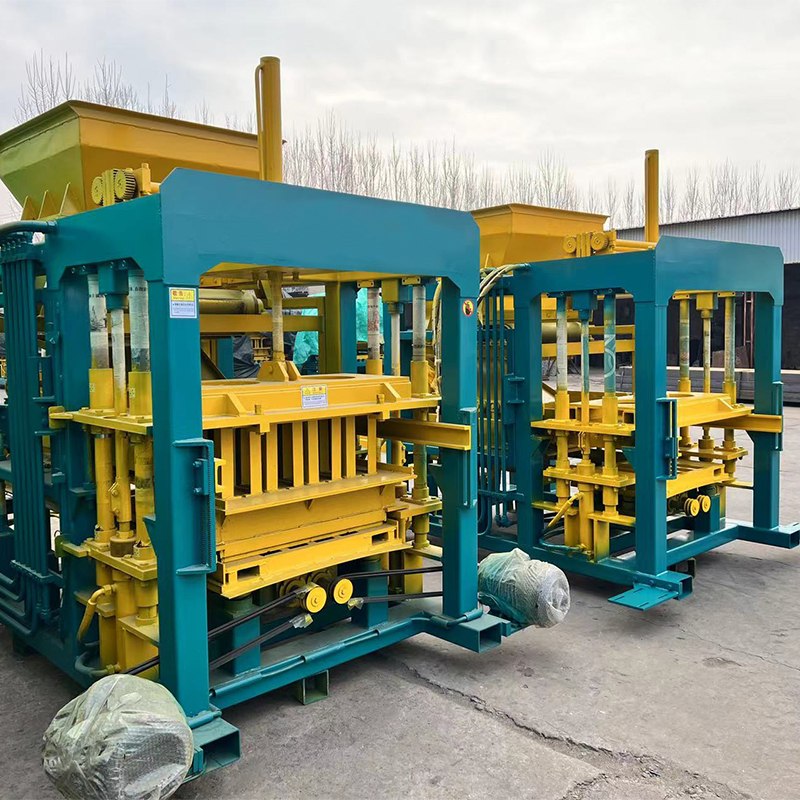
Image source :Aiweiblockmachine
Water intrusion poses a significant threat to the durability, stability, and functionality of buildings. Constructing water-resistant structures is crucial to mitigate the damaging effects of moisture, safeguarding the longevity and integrity of buildings. In this article, we explore the role of block making machines in the construction of water-resistant structures. We delve into the techniques, materials, and design considerations that can be incorporated into block production to enhance resistance to water infiltration and ensure the long-term performance of buildings in diverse environmental conditions.
Understanding Water Intrusion and Its Impacts
Water intrusion occurs when moisture infiltrates a building’s envelope, leading to structural damage, mold growth, and indoor air quality issues. The effects of water intrusion can range from aesthetic deterioration to significant structural failures, emphasizing the importance of constructing water-resistant buildings.
Block Making Machines and Water-Resistant Construction
Block making machines provide an ideal platform for incorporating water-resistant features into building blocks. These machines can employ various techniques and materials to enhance resistance to water penetration, ultimately contributing to the construction of more durable and resilient structures.
Water-Resistant Design Considerations
- Proper Mix Design: The mix design of blocks plays a crucial role in achieving water resistance. Using suitable proportions of cement, aggregates, and additives can enhance the blocks’ density, impermeability, and resistance to water infiltration.
- Admixtures: Incorporating water-reducing admixtures and waterproofing agents in the block mix can improve workability, reduce water absorption, and enhance the overall water resistance of the structure.
- Surface Coatings and Sealants: Applying surface coatings, such as water repellents and sealants, to blocks can create an additional barrier against water penetration. These coatings provide protection against moisture while preserving the appearance and integrity of the blocks.
- Joint Design: Proper joint design and sealing are essential to prevent water seepage through block connections. The incorporation of sealants or specialized jointing materials can effectively seal joints, minimizing water infiltration.
Water-Resistant Materials for Block Production
- Concrete Blocks: Concrete blocks made with a carefully designed mix, including low water-to-cement ratios and suitable admixtures, offer inherent water resistance. The use of waterproofing additives and aggregates can further enhance their impermeability.
- Lightweight Aggregates: Incorporating lightweight aggregates, such as expanded clay or shale, in block production can reduce the block’s overall porosity and increase resistance to water penetration. These lightweight aggregates provide excellent insulation and moisture resistance properties.
- Fiber-Reinforced Blocks: Adding synthetic or natural fibers to the block mix can improve the overall durability and crack resistance, reducing the potential for water infiltration.
- Insulated Concrete Blocks: These blocks feature insulation inserts or foam cores, providing both thermal insulation and enhanced water resistance. The insulation material acts as a barrier, reducing the transfer of moisture through the block.
Specialized Techniques and Applications
- Integral Waterproofing Systems: By incorporating integral waterproofing additives into the block mix, the entire block structure becomes inherently resistant to water penetration. This approach eliminates the need for external waterproofing measures and ensures consistent water resistance throughout the structure.
- Cavity Wall Construction: Utilizing block making machines to produce blocks with cavities allows for the incorporation of waterproof membranes or insulation materials within the wall assembly. This design prevents water from penetrating the structure while providing enhanced thermal performance.
- Rain Screen Systems: Blocks with textured surfaces or designed air gaps can create a rain screen effect, allowing water to drain away from the building while maintaining an air barrier and preventing water infiltration.
- Retaining Walls and Basements: Block making machines can produce blocks specifically designed for retaining walls and basement construction. These blocks incorporate additional reinforcement, waterproof membranes, and drainage systems to ensure the long-term integrity and water resistance of these critical structures.
Case Studies and Best Practices
Highlighting successful projects and best practices can illustrate the effectiveness of block making machines in constructing water-resistant structures. Examples may include high-rise buildings, residential complexes, or infrastructure projects that have implemented innovative design features and utilized blocks with enhanced water resistance properties.
Factors to consider when buying a hopper dryer
Here are the key things you should know when buying hopper dryers:
- Hopper dryer capacity: This refers to the volume of the plastic material that the dryer can handle at a time. The capacity that you choose should match your production needs. Whether it is a 25kg hopper dryer or 1000kg, you should specify.
- Temperature range: This is the maximum temperature that you can choose on the hopper dryer. Some dryers have low range while others have a high-temperature range.
- Speed: How long will it take for the dryer to completely dry the plastic material? Check out the estimated drying time of the equipment.
- Design and style: You should choose a hopper dryer that has sleek design and modern style. For example, its control panel should allow you to perform an array of functions.
- Performance and efficiency: The hopper dryer should be able to deliver excellent performance when it comes to drying plastic material. The equipment should also be energy-efficient such that you won’t have to pay high energy bills.
Choose reliable hopper dryer manufacturer in China
Where you buy a hopper dryer will always matter. If you are planning to buy a hopper dryer in China, ensure that it is from a reputable source. This is where comes in. We are a known manufacturer of quality hopper dryers in China.
Other than the quality equipment, we also have excellent customer support. All you need is to analyze your production and we will help you get the right hopper dryer.
Conclusion
Water-resistant structures are essential for protecting buildings from the damaging effects of moisture infiltration. Block making machines provide the construction industry with the means to incorporate water-resistant features into blocks, ensuring the durability, stability, and longevity of structures. By considering design considerations, utilizing suitable materials, and employing specialized techniques, these machines contribute to the construction of resilient buildings that can withstand diverse environmental conditions and safeguard occupants’ well-being.
